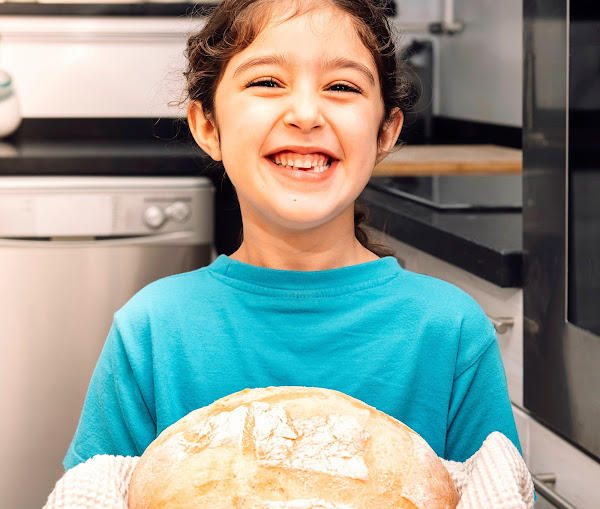Baking bread is a well-loved activity in the Montessori environment that provides children with an enjoyable hands-on experience along with some valuable learning opportunities. When children bake bread together, they practice math skills, such as measuring and estimating, and develop practical life skills such as mixing, kneading, and following a recipe. In addition, the teacher can use the activity as an opportunity to introduce topics related to cosmic education and cultural geography. Baking bread is a powerful tool that can help children learn about the world around them while also developing practical skills.
Cosmic Education and Bread
Cosmic education is the Montessori idea that everything is connected and has a purpose in the universe. Bread is an excellent example of this concept in action. When we make bread, we use ingredients that come from the earth – grains, water, yeast, etc. – and transform them into something new. This process not only teaches children about the interconnectedness of all things but also gives them a sense of purpose and responsibility in the world.Cultural Geography and Bread
Bread has a rich history and cultural significance around the world. Each culture has its own unique bread traditions. Exploring these traditions can be an excellent way to introduce children to geography and cultural diversity. For example, in France, baguettes are a staple of everyday life, and in India, naan bread is a popular accompaniment to curries. By exploring these different bread traditions, children can gain a deeper understanding of the world around them and develop a sense of empathy and respect for other cultures. As Montessori teachers, we have the unique opportunity to use bread as a tool to educate and inspire children to become curious, empathetic, and respectful global citizens.Simple Bread Recipes for Children
Here are a few simple bread recipes from around the world for you and your students to try together in the Montessori environment:For more ideas of incorporating cosmic education and cross-cirricular activities in your Montessori classroom enroll in NAMC's Montessori Diploma Programs today!













